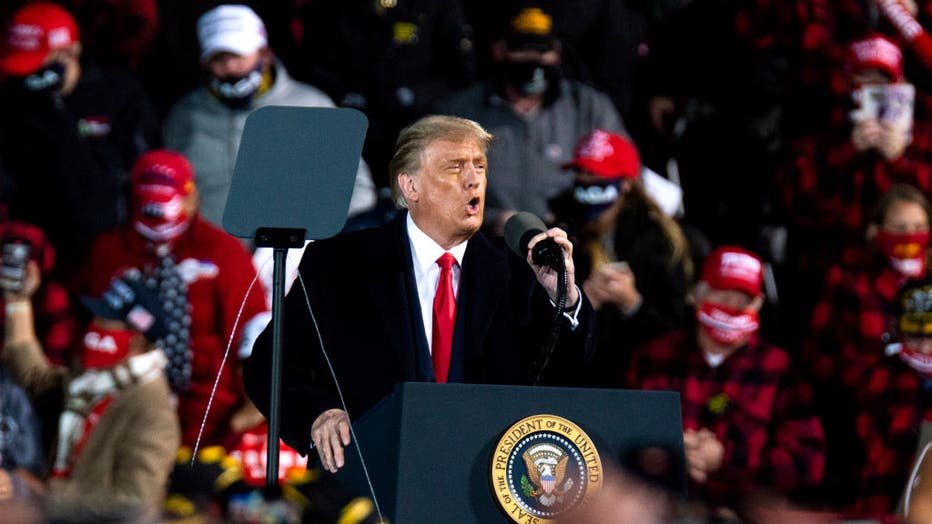Experts say the next few weeks will be critical for President Trump

Doctors discuss next 2 week critical for president
Doctors say the next 10 to 14 days is critical for President Donald Trump after testing positive for COVID-19.
ATLANTA - The White House says President Trump is feeling "mild" cold-like symptoms, hours after being diagnosed with COVID-19.
Dr. Lisa Maragakis, Senior Director of Infection Prevention for Johns Hopkins Health System, says the next two weeks will be critical for Mr. Trump.
"I would say that in the next 10 to 14 days, we'll have a good idea of how severe his symptoms have become," Dr. Maragakis says.
At 74, President Trump is considered "high-risk" for becoming severely ill from the virus.
Still, Maragakis cautions, many people, even higher-risk individuals, develop mild symptoms, or no symptoms at all.
"One of the most important things to watch for is any symptoms of shortness of breath or a dropping oxygen level," Dr. Maragakis says. "So, one thing that's very helpful is to measure the amount of oxygen in the blood, using a simple sensor on the tip of your finger."

President Donald Trump speaks during a campaign rally at the Duluth International Airport on September 30, 2020 in Duluth, Minnesota. (Photo by Stephen Maturen/Getty Images)
The President and First Lady Melania Trump and close aide Hope Hicks will remain isolated while they recover.
"We recommend isolation for a minimum of 10 days following the onset of symptoms or the first positive test," Dr. Maragakis says. "That is really to allow the person to clear the virus so there is not a risk of transmission to others."
Because the President has made several trips and public appearances over the last few days, while not wearing a mask, Dr. Maragakis says it is possible Mr. Trump may have exposed many others to the virus.
Contract tracers will be trying to track down anyone who has been in close contact with the president and first lady.
"There will need to be an evaluation of who meets the definition of close contacts, of being within 6 feet for more than 15 minutes, especially if one or both individuals were not wearing masks."
Under CDC guidelines, anyone exposed should quarantine or stay home except to seek medical care, for two weeks.
"You're really separating yourself from others, in case you develop the disease at some time in that 14-day period," Maragakis says.

